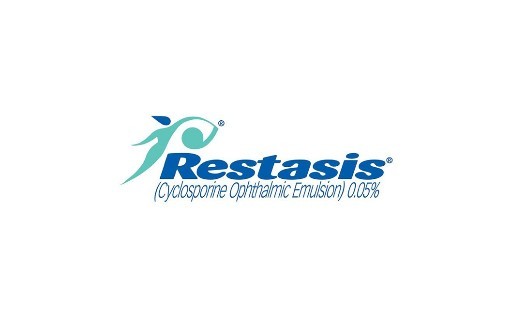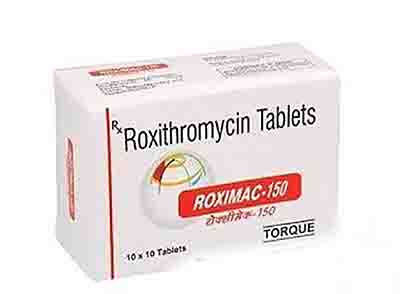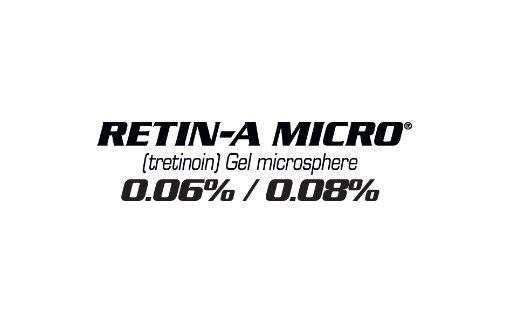- Your cart is empty
- Continue Shopping
Product
- Canaan Pharmacy Online Pharmacy | Online Canadian Pharmacy
- Need More Information Call Us 1-833-356-6337
Repaglinide (Prandin) SAVE 90% | Canada Pharmacy Online
What is Repaglinide (Prandin)?
Repaglinide is an oral medication your doctor may prescribe to regulate blood sugar level control in the treatment of your type 2 diabetes mellitus.
It belongs to a class of medications known as meglitinides, or simply Glinides for short. If needed, other diabetes medicines can be sometimes prescribed together with it. It should be used in addition to a healthy diet and regular exercise.
What is it used for?
Repaglinide is used to help lower blood sugar levels in patients with type 2 diabetes whose blood sugar levels cannot be regulated by diet and exercise alone.
It can also be used in combination with metformin or rosiglitazone to help lower blood sugar levels in patients whose blood sugar levels cannot be regulated by diet and exercise only, or with metformin or rosiglitazone alone.
How does Prandin work?
Repaglinide is an oral antidiabetic drug that helps your body release more insulin when your blood sugar levels get too high.
It is part of a class of drugs called meglitinides, as mentioned above. It works by lowering blood sugar levels by stimulating the release of insulin from the beta cells of the pancreas.
Insulin itself regulates the breakdown of food (carbohydrates, fats and protein) by promoting the absorption of sugar from the blood into fat, liver and skeletal muscle cells.
How to take this medication
Your doctor will prescribe Repaglinide depending on your individual needs. You should always take it exactly as prescribed by your doctor.
The dose can be taken with food, usually 15 minutes before a meal. However, it may be taken 30 minutes before a meal or even right before a meal.
Dosage
Always follow the directions on the prescription label. To get the best results, your doctor may occasionally change your dose.
Never take it in bigger or smaller amounts or for longer or shorter period than recommended by your doctor.
Repaglinide is usually taken two to four times a day, within 30 minutes before a meal. If you should happen to skip a meal, do not take that missed dose and just wait until your next meal.
The recommended dose range is in between 0.5 to 4 mg orally with each meal, with the maximum recommended daily dose being 16 mg.
Individualized Therapy
For patients who have not been previously treated with any other diabetes medication, or whose average longer-term blood sugar level, as measured by glycosylated hemoglobin (HbA1c), is less than 8%, the initial dose is usually 0.5 mg orally with each meal.
For patients who have been previously treated with antidiabetic agents or whose HbA1c is 8% or higher, the initial dose is usually 1 to 2 mg orally with each meal.
Dose adjustments are commonly made in response to your own blood sugar response.
Your doctor may double your dose up to a maximum meal time dose of 4 mg until a satisfactory blood sugar level response is achieved. You should allow at least one week to assess your blood sugar level response after each dose adjustment.
Your blood sugar levels will need to be checked often, and your doctor may require you to take other blood tests.
Your blood sugar level should be carefully monitored during times of stress, illness, travel, surgery or a medical emergency, strenuous exercise, or if you happen to drink alcohol or skip meals. All of these things may affect your blood sugar levels and your dose needs may also change because of them. Never change your schedule or dose without your doctor’s advice.
Repaglinide is only a part of your treatment program that may also include a healthy diet, regular exercise, supervised weight control, frequent blood sugar level testing, and special medical care. Always follow your doctor’s instructions as close as possible.
Overdose
If you happen to take more Repaglinide than you should your blood sugar level may become too low, leading to what is called a hypoglycemic event.
The symptoms of such an event include headache, nausea, dizziness, tiredness, nervousness, rapid heartbeat, shakiness and sweating. Contact your doctor immediately if you experience any of these symptoms.
Warnings and Precautions
Do not take the drug:
- If you have any known hypersensitivity or allergy to Repaglinide, or any of the other ingredients
- If you have type 1 diabetes
- If you have severe liver disease
- If you suffer from diabetic ketoacidosis (an accumulation of ketones in the blood and urine)
- If you are taking the drug gemfibrozil (used to lower increased fat levels in the blood)
- If you are taking the drug clopidogrel (used to prevent blood clots)
It is not recommended for the treatment of children and adolescents less than 18 years of age.
It may cause hypoglycemia (low blood sugar), specifically if you happen to skip a meal, exercise for extended lengths of time, drink a lot of alcohol or use other diabetes medications.
Ask your doctor about the symptoms of low blood sugar levels and what to do if you experience them.
You should always remember to test your blood sugar levels as instructed by your doctor.
Repaglinide side effects
Common negative effects may include:
- Abdominal pain
- Visual disturbances (including blurred vision)
- Constipation
- Nausea
- Vomiting
Less common negative effects may include:
- Liver dysfunction
- Itching
- Abnormal blood test results
- Redness
- Rash
- Hives
Talk to your health care provider about any side effect that bothers you or does not go away.
These are not all the possible negative effects.
Call your doctor for medical advice about side effects.
What is Repaglinide (Prandin)?
Repaglinide is a diabetes medicine that helps to improve blood sugar (glucose) control.
It is commonly prescribed for patients who have type II diabetes mellitus.
Prandin belongs to a class of drugs called glinides (otherwise known as meglitinides), which lower blood glucose levels by promoting the pancreatic release of insulin. Apart from 2mg dose, lower dosages of 0.5mg and 1mg are also available. Repaglinide is a developed by Actavis, a US-based pharmaceutical corporation.
What is it used for?
Repaglinide is used in diabetes patients to enhance glycemic control. This drug is intended to treat type 2 diabetes only.
As with many oral hypoglycemic drugs, Repaglinide is not effective in the treatment of diabetic ketoacidosis or type 1 diabetes.
Prandin is usually used along with exercise, diet or other non-pharmaceutical interventions.
Why use it?
Repaglinide has been approved for use in adult diabetes patients. It helps to increase the pancreatic insulin release, dramatically improving blood glucose control.
Use this medication if you are looking for an oral diabetes medication to help you control your blood glucose level.
If you are not finding relief with diet and exercise alone, add Prandin to your regime to help.
hat is Repaglinide (Prandin)?
Repaglinide is a type of diabetes medication designed to be taken orally. It helps to improve glycemic control in diabetic patients (in particular those who suffer from type II diabetes).
Chemically, Prandin belongs to a group of medicines called meglitinides (or glinides).
Once taken, it stimulates insulin release by the pancreatic cells, thereby reducing blood glucose levels.
Repaglinide is formulated as 0.5mg tablets. Higher dosage strengths (1mg and 2mg) are also available. Repaglinide is a product of the US-based Actavis.
What is it used for?
Repaglinide is used for improving blood glucose control in type 2 diabetic individuals.
It is especially useful in patients whose blood glucose levels cannot be adequately controlled by diet or exercise alone.
It is not indicated for the treatment of type 1 diabetes, or diabetic ketoacidosis.
While using Prandin, it is important to closely follow the doctor’s instructions, including any lifestyle recommendations such as regular exercise and healthy diet.
Repaglinide should not be used in patients younger than 18 years of age.
Why use it?
Use this medication to help you manage your blood glucose levels.
Repaglinide has been approved by the FDA for the treatment of type II diabetes.
It is clinically proven safe and effective in adult patients, helping them to achieve optimal glycemic control.
What is Repaglinide (Prandin)?
Repaglinide is a prescription medicine manufactured by Actavis, a global pharmaceutical company based in the United States.
It helps patients with diabetes mellitus to improve their blood glucose control. Prandin is classified as a meglitinide (or glinide).
It is believed that Repaglinide reduces glucose levels in the blood through the stimulation of pancreatic insulin release. In addition to the 1mg formulation, repaglinide is also available in 0.5mg and 2mg formulations.
What is it used for?
Repaglinide is used to regulate glucose levels in the blood. It is mainly used in the management of type II diabetes mellitus.
Generally, it is not advisable to use this drug in patients with diabetic ketoacidosis.
Similarly, Prandin should not be used in the treatment of type I diabetes, as it would not be effective in these settings. For best results, it is recommended to use Repaglinide along with non-pharmacological treatments such as exercise or dietary modification.
Why use it?
Use this medication to help you manage your blood glucose levels. Being FDA-approved, the formulation is generally well tolerated.
It is especially useful in diabetes patients who fail to control their blood sugar levels with diet or exercise alone.
Notes:
The information in this website is intended to supplement, not substitute for, the expertise and judgment of healthcare professionals. The information is not intended to cover all possible uses, directions, precautions, drug interactions or adverse effects, nor should it be construed to indicate that use of a particular drug is safe, appropriate or effective for you or anyone else. A healthcare professional should be consulted before taking any drug, changing any diet or commencing or discontinuing any course of treatment.






